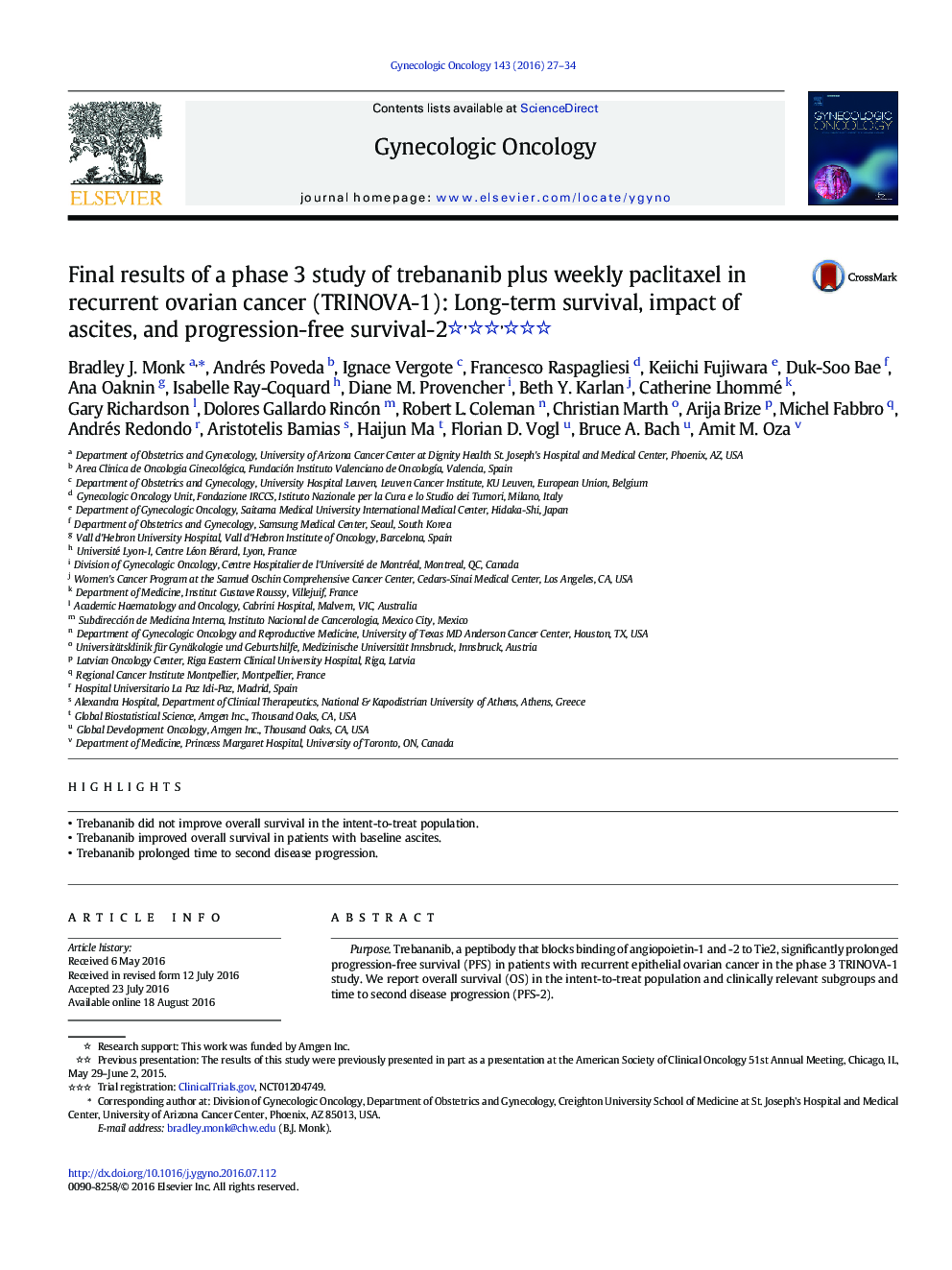| کد مقاله | کد نشریه | سال انتشار | مقاله انگلیسی | نسخه تمام متن |
|---|---|---|---|---|
| 3942403 | 1410079 | 2016 | 8 صفحه PDF | دانلود رایگان |
• Trebananib did not improve overall survival in the intent-to-treat population.
• Trebananib improved overall survival in patients with baseline ascites.
• Trebananib prolonged time to second disease progression.
PurposeTrebananib, a peptibody that blocks binding of angiopoietin-1 and -2 to Tie2, significantly prolonged progression-free survival (PFS) in patients with recurrent epithelial ovarian cancer in the phase 3 TRINOVA-1 study. We report overall survival (OS) in the intent-to-treat population and clinically relevant subgroups and time to second disease progression (PFS-2).Patients and methodsWomen with recurrent disease (platinum-free interval < 12 months) were randomized to receive intravenous paclitaxel 80 mg/m2 (3 weeks on/1 week off) plus intravenous trebananib 15 mg/kg or placebo, weekly. OS in the intent-to-treat population was a key secondary endpoint. Exploratory analysis of PFS-2 was conducted according to guidance by the European Medicines Agency.ResultsMedian OS was not significantly improved with trebananib compared with placebo (19.3 versus 18.3 months; HR, 0.95; 95% CI, 0.81–1.11; P = 0.52) in the intent-to-treat population (n = 919). In subgroup analysis, trebananib improved median OS compared with placebo (14.5 versus 12.3 months; HR, 0.72; 95% CI, 0.55–0.93; P = 0.011) in patients with ascites at baseline (n = 295). In the intent-to-treat population, trebananib significantly improved median PFS-2 compared with placebo (12.5 versus 10.9 months; HR, 0.85; 95% CI, 0.74–0.98; P = 0.024). The incidence and type of adverse events in this updated analysis was consistent with that described in the primary analysis; no new safety signals were detected.ConclusionsOS was not significantly longer in the intent-to-treat population, although there was an improvement in OS in patients with ascites receiving trebananib. PFS-2 confirmed that the PFS benefit associated with trebananib was maintained through the second disease progression independent of the choice of subsequent therapy.
Journal: Gynecologic Oncology - Volume 143, Issue 1, October 2016, Pages 27–34
